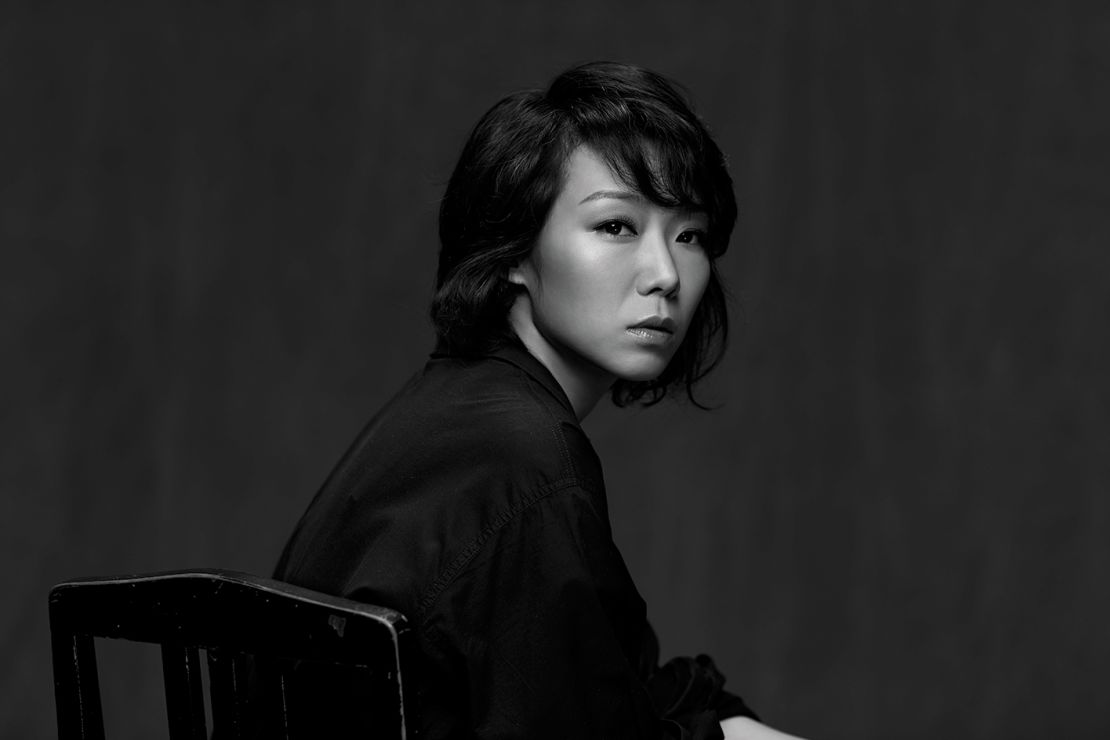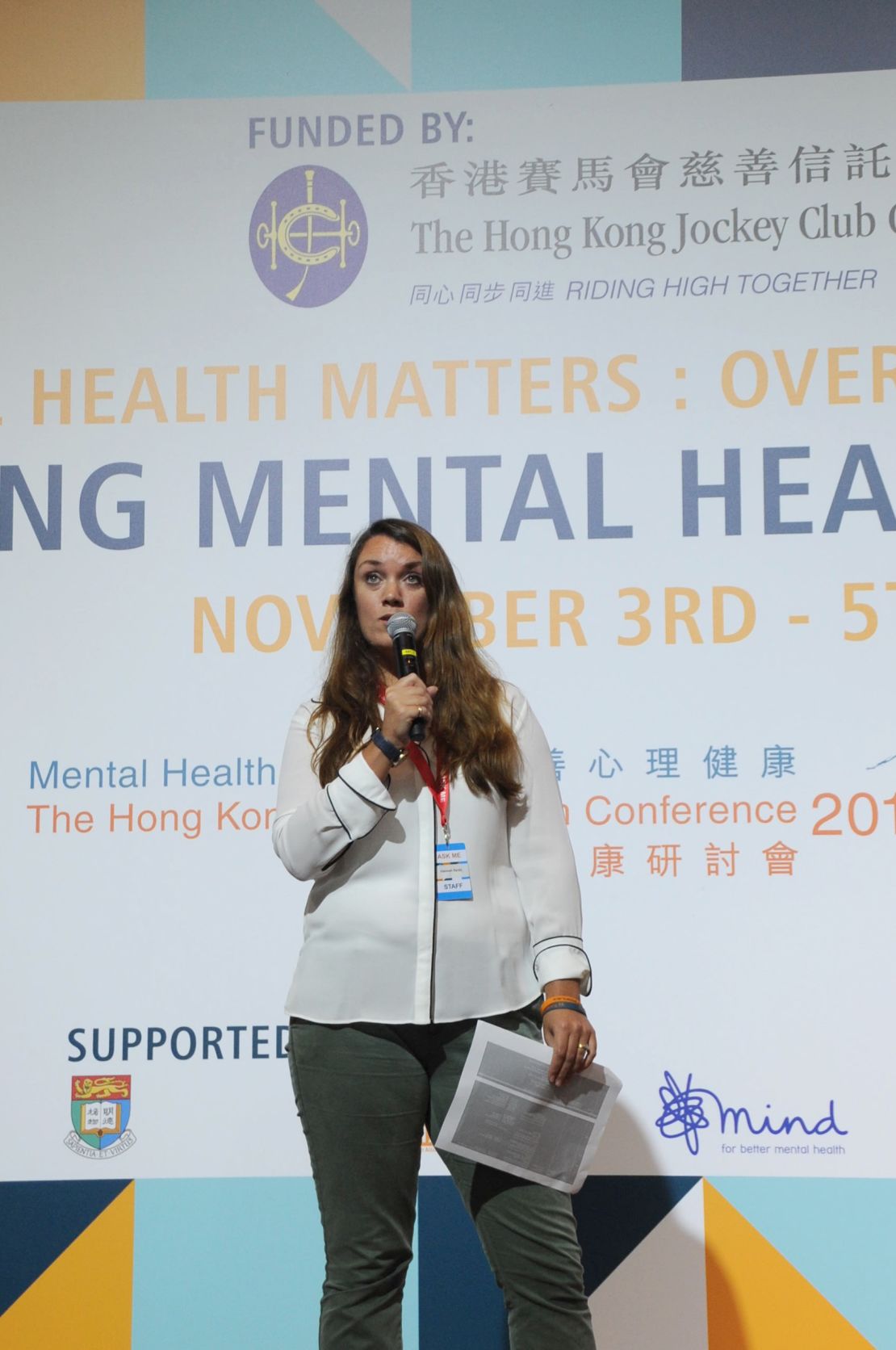Story highlights
Suicides in Asia make up 60% of the global total
One in six Hong Kong residents has a common mental disorder
He just wanted help, but it proved much harder to find in Hong Kong than at home.
In one of the most densely populated areas in the world – withmany people working long hours, severe air pollution, skyrocketing home costs, strict schools and a fragile political climate – at least one in sixHong Kong residents have a common mental disorder, such as anxiety, depression and psychotic disorders, according to two studies cited by Sherry Kit Wa Chan, clinical assistant professor in the Department of Psychiatry at the University of Hong Kong.
Despite the numbers, Laurence Grant discovered that the amount of resources available to those in need of mental health support was not enough.
In October, his girlfriend, Olivia Parker, found him dead in their Laos hotel from amix of alcohol, sleeping pills, antidepressants and antipsychotic medicine.
“In Hong Kong, there didn’t seem to be an obvious place he could go to for help,” Parker said, adding that there was no implication that his death was intentional.

The depression hit like “black waves,” starting when Grant was a teenager in the UK, she said. “He couldn’t see anything else. He couldn’t get out of it. He just felt like everything good was gone from this world.”
The two were together for 4½ years. They met in Scotland in 2012, three weeks before Grant left for Afghanistan, serving in the British army as a lieutenant and captain. When he came back to London in May 2013, they started dating again. She was drawn to “everything about him.”
“You could not ever be bored around him,” Parker said. “He would just sweep everyone up in whatever he cared about. He could talk about anything with anyone. He was always the most happy when other people were happy.”
These waves became worse when Grant came back from Afghanistan. It was a tough transition from a high-risk environment to an office setting. He worked as a bid manager at the global accountancy firm KPMG,where people were stressed about things that had nothing to do with life and death.
Grant and Parker decided on a fresh start and moved to Hong Kong in January 2017. They wanted to embark on a new adventure and maybe “leave some of what he was feeling behind,” Parker said.
But it “wasn’t really a great tactic,” she said.
‘Black waves’ from the pressure
Life in Hong Kong can be stark, with a culture of success and quick fixes. It’s stressful for those working high-pressure jobs like Grant, who became a manager in cross-border client contracting for Deloitte.
“He was constantly quite anxious about what he was doing there,” said Parker, 30. He had a “tightness in his chest that wouldn’t go away” with the “pressure to do the job really well.”
Not only does Hong Kong clock in with the most work hours per week globally – more than 50, according to a study by UBS – a reported 60% of residents experience stress and anxiety related to their jobs.
Half of the respondents to a 2014 study by the Mental Health Association in Hong Kong felt that they had poor mental health.
“We believe that it’s a combination of the culture, the enormous pressure that people place on themselves to succeed and do well in a highly competitive, high-achieving system, the working hours and the fact that we live in a very cramped, urban environment,” said Hannah Reidy, who runs the new mental health charity initiative Mind HK. “These problems start young, too: Children are feeling incredibly anxious, low and sometimes suicidal due to the pressure that they feel under to achieve what is expected of them.”

As a result, people become very fragile, said Hong Kong actress and comedian Cheuk Wan Chi, who attempted suicide after her mother’s death from cancer. “That is the norm of today,” she said.
As a former radio personality, DJ and show host, the 39-year-old “doesn’t mind” being open about her 2006 attempt, describing suicide as not only a personal issue but a social issue. After she opened up about her story, Cheuk said, she received lots of messages from people about their own struggles.
“I feel like they were waiting for a chance to talk about it,” said Cheuk, who is planning an October Hong Kong comedy show and whose 2015 Hong Kong “Two Night Stand” show is on Netflix. “I try to correspond especially to those who are stuck right now. … I always feel glad that people open up to me, meantime I feel heavy because this is a problematic scenario.”
More than half of suicides around the world are in Southeast Asia and Western Pacific regions, according to the World Health Organization. And although the number of suicides is highest in Japan or South Korea, it is one of the leading causes of death in Hong Kong: about 900 per year in the past decade. Hong Kong’s suicide rate is sixth in Asia, behind South Korea, Kazakhstan, Sri Lanka, Japan and Taiwan, according to WHO.
This figure includes students who take their lives due to academic pressures, but the silent majority are men and seniors who don’t speak up. The suicide rate of people over 65 is about 40 times more than of those under 15, according to the Hong Kong Jockey Club Centre for Suicide Research and Prevention. And the suicide rate for men is about twice as much as for women.
Men are less willing to talk due to pride, while seniors worry that after retirement, they have no value and are more of a burden to their families, said Clarence Tsang, chief executive of Samaritan Befrienders Hong Kong, which provides counseling services to people with suicidal tendencies and behavior. The agency was the first of its kind in Asia.
Under-reported in Asia
Though one in eight may be the statistic for depression and anxiety in Hong Kong, Reidy said the number is “probably an under-representation, as stigma and shame prevents many people from reporting (problems with) mental health.”
Only a quarter of people experiencing a mental health problem reach out for professional help in Hong Kong, said Reidy, who has worked in the field for over a decade.
Even so, the demand for psychiatric services has been increasing about 18% in Hong Kong, from 187,000 in 2011 to over 220,000 in 2016. And the caseload for child and adolescent psychiatric teams has increased by more than half in five years: from 18,900 in 2011 to 28,800 in 2016.
But health care services aren’t in a position to meet the growing demand.

“Resources here are really low,” Reidy said. “To add to this problem, the resources that we do have (small nongovernmental organizations and services, as well as larger organizations) are struggling to connect with the population that needs them. This is partly due to the public’s lack of awareness and partly stigma.”
To adequately treat those affected by mental health disorders, the WHO recommends a ratio of 10 psychiatrists per 100,000 people. The ratio in Hong Kong is about 4.9 psychiatrists per 100,000 people; the UK, where Grant was from, has a ratio of 14.6.
“There are under half the number of psychiatrists recommended by the World Health Organization for our population size,” Reidy said.
As a result, the level of care is affected. This was the case for Yan, who was only comfortable giving her first name, after a court ordered that she get counseling for early psychosis in 2016. She said that “powers” were controlling her, making her do things like talk to herself.
In cases of early psychosis, early intervention can cut the risk of suicide by half, according to a recent study in the Journal of the American Medical Association.
Without the court order, said Yan, a 39-year-old engineer, she would never have realized that she needed counseling. The lack of doctors in the system was also challenging, she said, because her case managers constantly change, and thus she ends up using most of her consultation time explaining her own diagnosis to the doctor.
Another challenge to treatment is the cost. When someone does find a doctor, it’s expensive.
Sticker shock
In the UK, Grant saw a therapist for free under his work’s health care and the National Health Service, but in Hong Kong, it was more than HK $3,000 (almost US$400) per hour, Parker said.
The cost was not sustainable, even though he had a well-paying job, she said, so he started to self-medicate, buying sleeping pills at local pharmacies and drinking.
There is not the same “safety net” in Hong Kong as other places, said Hong Kong clinical psychologist Klaris Leung, who leads many wellness programs for professionals.
Leung said that most Hong Kong insurance plans don’t cover sessions – a marked difference from her time at her clinic in New York’s Chinatown district, where many patients had immigrated from Hong Kong and their treatment wascovered by insurance.
Andrew Welling faced the same problem. His health care covered therapy in his home country of Australia but not in Hong Kong, where he moved at the end of 2012.
If you need help in Hong Kong
“It was a ridiculous experience. I could tell the psychologist had no experience with depression,” said Welling, 34, who paid HK$2,500 (about US $320) per session. “It’s really quite hard to find someone to find that I can talk to. It’s also expensive, and there’s a stigma attached to it.”
He admits that he could have easily gone the way of Grant, adding that despite all the challenges, as with any injury, one must see a doctor and get help.

“When we have injuries in our ankles and knees, it’s all we talk about, but at no point do we talk about health above the neck,” Welling said. “We don’t walk around with a broken leg without seeing a doctor, so why should mental health be any different?”
After losing local rugby friends to suicide, Welling created the Blue Tie Ball, a charity night to raise money for mental health groups. Last year, it raised HK $650,000, and this year, it plans to raise HK $1 million.
Saving face
Depression has a stigma all over the world but is particularly strong in Chinese culture.
“They think that it’s something to be ashamed of,” said Chan, who has practiced psychiatry in Hong Kong for eight years. “Chinese culture is more collective, so the whole family will feel the shame as well, indicating there is something wrong with the person and something wrong with the family.”
Unfortunately, this view has not changed much over that time, said Chan. She conducted a survey across Hong Kong in 2009 and 2014 and found that there was “no change of public stigma within the Hong Kong Chinese population.”
Moving forward
Before Grant died, he was working on a charity called Help Me, because it was “all he could think when he was feeling at his worst,” Parker said.
She is collaborating with Mind HKto create a chatbot for those looking for mental health help. She also hopes to make Grant’s dream of free therapy a reality.
Parker believesthatthe conversation around mental health is gaining momentum in Hong Kong. In November, the first Hong Kong Mental Health Conference gathered 400 attendees and over 100 speakers to launch Mind HK, which provides online information and training. Mind HK is set to launch the Mind Media Awards this November to promote mental health in the media.

Last year, the government also launched an in-depth study of the mental health situation. Itstressed how mental health is a “major public health concern in Hong Kong.”
The report outlined several government programs to improve resources for those in need, such as Joyful@HK, a three-year educational campaign working with schools and workplaces to increase public engagement and knowledge around mental health.
In March, the government launched the Voluntary Health Insurance Scheme, which extends health coverage to psychiatric treatments.It is working on increasing services and psychiatrists, to improve the patient-to-case manager ratio from 47-to-1 to 40-to-1.
“The review underlined the government’s commitment to promoting the mental well being of the population while safeguarding the interest of those with mental illness,” said Fong Ngai, the deputy secretary for Hong Kong’s Food and Health Bureau.
Samaritan Befrienders has a chat line available for those reticent to talk in person. And the Hong Kong Jockey Club Centre for Suicide Research and Prevention has worked with social media companies to reach youth, such as a YouTube video about suicide in Hong Kong.
The center found that many youth post about planning suicides on social media, so “now we can cleverly use it as a platform to engage them,” Director Paul Yip said.
Many of these services are surfacing after Grant’s death, but Parker hopes that her openness about his story will help things change, because she knows that “he would have stood up and told the world how he felt if it made it better.”







